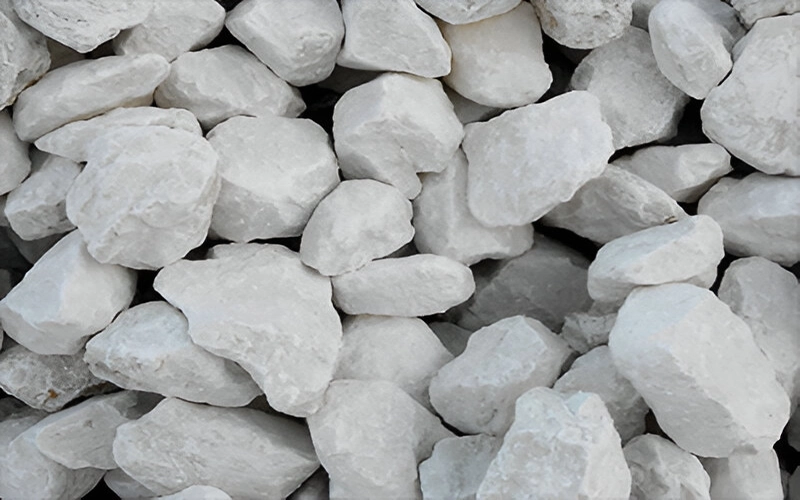Gypsum Ore
Gypsum ore is a soft sulfate mineral composed of calcium sulfate dihydrate (CaSO₄·2H₂O). It forms as an evaporite mineral, often found in sedimentary deposits where large bodies of water have evaporated over time, leaving behind concentrated layers of minerals. Gypsum is typically white or gray in color and is known for its softness—ranking just 2 on the Mohs hardness scale, which means it can be easily scratched with a fingernail.
Gypsum deposits are found all over the world, with significant reserves in countries such as the United States, China, Iran, Thailand, and Spain. In the U.S., large gypsum mines operate in states like Oklahoma, Texas, Iowa, and Nevada. The mineral is usually extracted through surface mining or quarrying due to its near-surface occurrence and ease of access.
One of the most important uses of gypsum is in the construction industry, particularly in the production of plaster, wallboard (commonly known as drywall), and cement. Gypsum wallboard is a standard building material for interior walls and ceilings due to its fire resistance, ease of installation, and cost-effectiveness. The construction industry consumes the majority of gypsum produced worldwide.
Gypsum is also used in agriculture as a soil amendment. It helps to improve soil structure, reduce compaction, and provide essential nutrients like calcium and sulfur to plants. It is especially useful in clay-heavy soils and in areas affected by salt, where it helps to leach excess sodium and improve soil fertility.
In the cement industry, gypsum plays a crucial role as a set retarder. When added to Portland cement, it slows down the hardening process, giving workers more time to pour and shape the material before it sets. This makes it a vital additive in concrete and mortar production.



